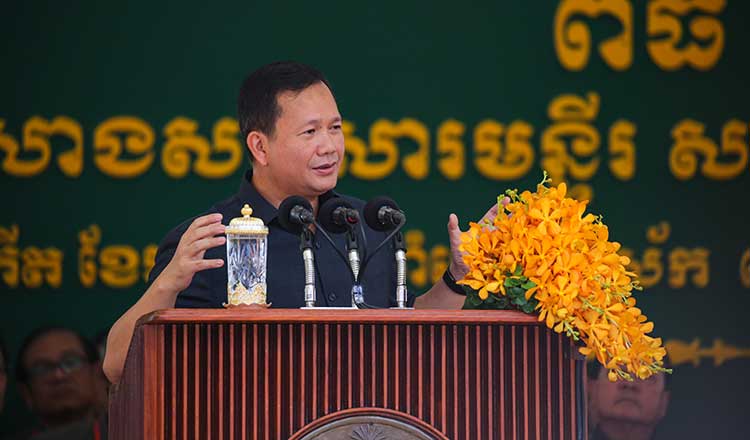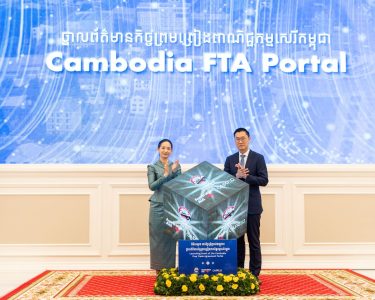Cambodia Investment Review
During a recent speech to commemorate the first twelve months of the newly elected Royal Government of Cambodia Prime Minister Hun Manet announced a series of tax incentives and exemptions with the objective of stimulating growth across critical industries, including real estate, agriculture, tourism, and education.
Notably, the Prime Minister delayed the implementation of the widely discussed capital gains tax for the real estate sector, introduced new provisions to ease tax burdens on small businesses and extended the recent voluntary disclosure period for tax declarations. These steps are part of the government’s broader strategy to foster a more conducive business environment amid evolving economic challenges.
Pro-Active Measures by RGC
Managing Partner and Head of Tax at DFDL, Clint O’Connell, welcomed the changes as further evidence of the positive pro-active measures being taken by the Royal Cambodian Government to assist Cambodia businesses – some of which are still struggling in the post-COVID era. O’Connell makes the point that the capital gains delay to 31 December 2025 seems to relate only to immovable property and the real estate sector meaning that other categories of capital, including gains arising from share transfers in Cambodian entities by non-resident shareholders and resident individual shareholders, are still on track to be taxed under the new capital gains regime from 1 January 2025.

“The extension of the voluntary disclosure incentive that was previously granted under Prakas 071 to June 2025 provides a win-win for taxpayers and the government as it incentivizes compliance whilst increasing tax revenue. The carrot and stick approach used by the government regarding the informal sector is also working and the benefits and incentives that are on offer to MSME’s are material and practical.
As tax practitioners we look forward to receiving the implementing regulations from the Royal Government concerning these developments so that we can inform and update our clients and the business community at large”.
Key Points:
Real Estate Sector
- Extended Tax Incentives: The Prime Minister extended tax incentives in the real estate sector until the end of 2025. This includes the postponement of capital gains tax, lump-sum tax payments for real estate developers, and the exemption of transfer tax on ownership transfers for residential houses in Borey projects valued at or below USD 70,000.
- Exemption on Unused Land Tax: Additionally, land areas below 5 hectares will be exempt from the tax on unused land, a move aimed at reducing the financial burden on landowners and encouraging land development.
Voluntary Amendment of Tax Returns
- Extended Timeline: The timeline for taxpayers to voluntarily amend their tax returns has been extended until the end of June 2025. During this period, taxpayers can make corrections without facing penalties or the standard 1.5% monthly interest rate, providing significant relief and encouraging compliance.
New Tax Incentives for Enterprises
- Site Tax Audit Exemption: The government will continue to exempt small taxpayers from site tax audits during business operations and closures, aiming to ease operational pressures on small enterprises.
- Repeal of Prakas 360: The Prime Minister also announced the abrogation of Prakas 360, which had caused confusion among small business owners. He clarified that businesses with an annual turnover below 250,000,000 KHR are exempt from tax obligations, including patent tax registration, ensuring that the smallest enterprises operate without undue tax burden.
Agriculture Sector
- Continued Exemptions: The tax exemption for agricultural and family farmland remains in place, supporting the agricultural sector’s vital role in the economy. Additionally, the import tax on agricultural equipment and products such as fertilizer, seeds, and animal feed continues to be exempted.
- Suspension of PTOI and WHT: The suspension of PTOI (Prepayment of Tax on Income) and WHT (Withholding Tax) on service payments for enterprises involved in producing, supplying, or exporting 11 key agricultural products, including paddy rice, rubber, and mango, has been extended.
Tourism Sector
- Extended Tax Exemptions for Siem Reap: The previously granted tax exemptions for tourism enterprises in Siem Reap province have been extended for another year, until June 2025. These businesses will continue to be exempt from all types of monthly taxes, except VAT and accommodation tax, and will not be subjected to tax audits during this period.
Education Sector
- Long-term Tax Incentives: The education sector will benefit from extended tax incentives until the end of 2028, reflecting the government’s focus on supporting long-term growth in education.
The Prime Minister’s announcements mark a continuation of Cambodia’s strategic efforts to create a favorable tax environment that supports economic growth and sectoral development. These incentives are expected to provide significant relief to key sectors, encouraging investment, and enhancing the overall business climate in the country.





